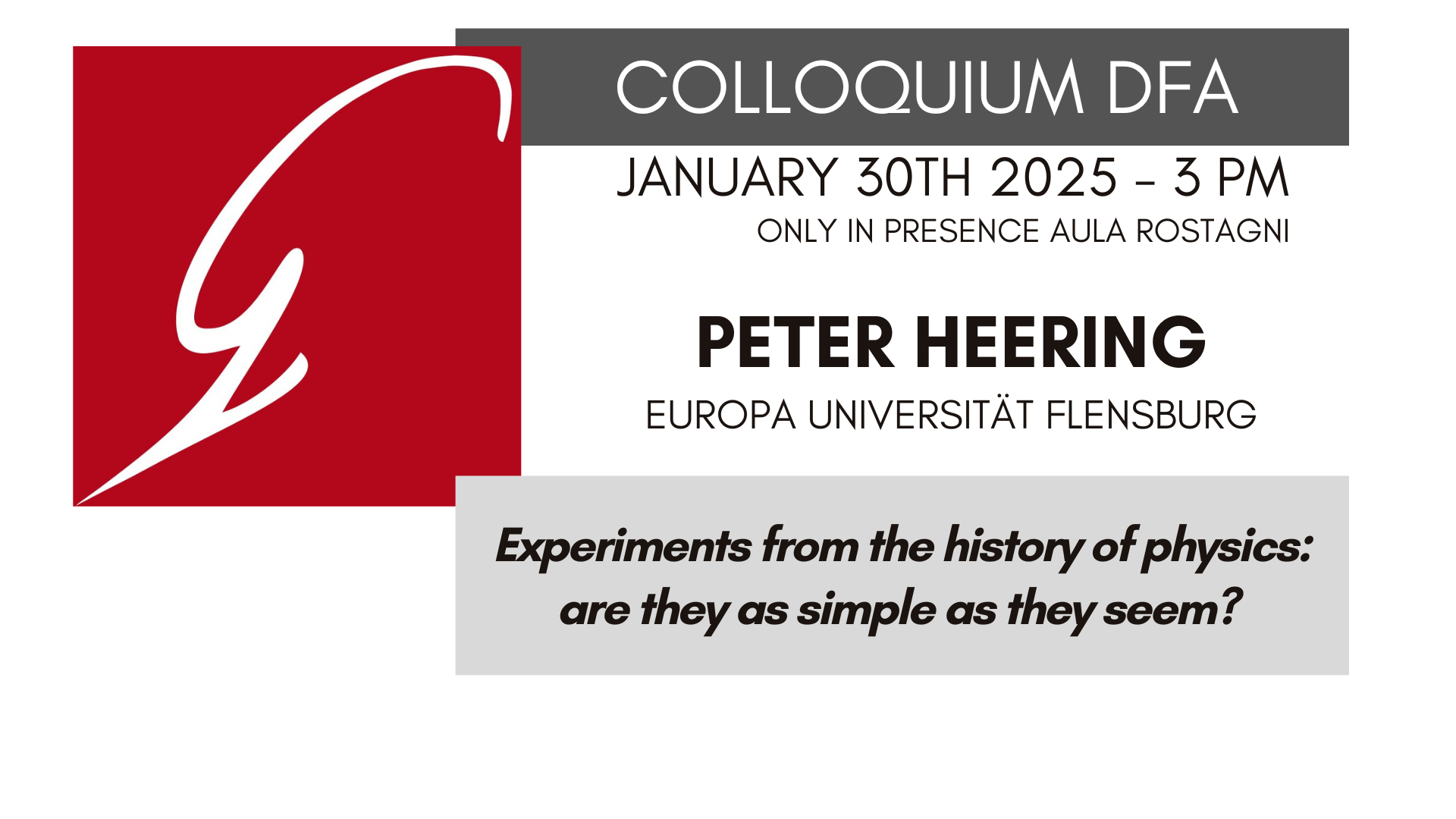Colloquium January 30 - Experiments from the history of physics: are they as simple as they seem?
by
1/1-1 - Aula "A. Rostagni"
Dipartimento di Fisica e Astronomia - Edificio Marzolo

Speaker: Peter Heering
Affiliation: Europa Universität Flensburg
Date: January 30th, at 3 PM
Where: Aula Rostagni
Abstract: Some instruments and experiments from the history of physics can be found in practically all textbooks; therefore, they can be described as canonical. Among them are Millikan’s oil drop apparatus, Coulomb’s and Cavendish’ torsion balances or experiments to determine the speed of light. However, the descriptions of these canonical instruments and experiments do not go into any further detail and thus support an image according to which experiments are simple and straightforward (at least for the genius who carried them out).
However, when corresponding experiments are analyzed using the replication method, it quickly becomes evident that this idea is very misleading. Instead, stabilization and the creation of control play an essential role in the experimental process.
In this lecture, selected examples will be used to illustrate the more thorough understanding of physical experimentation and its development that can be created through the replication method.
Starting in 1996, Peter Heering was lecturer and subsequently senior lecturer at the physics department of the Carl-von-Ossietzky-Universität Oldenburg. In 2004, he was Scholar in Residence at the Deutsches Museum Munich; from April 2006 until March 2007, he was professorial substitute of the chair for physics didactics at the Universität Augsburg. In 2009, he became full professor of physics and its didactics at the Europa-Universitaet Flensburg. He is the 2024 recipient of the Paul Bunge Prize from the German Chemical Society and the German Bunsen Society for Physical Chemistry. In 2011, he was awarded the Archimedes-Preis of the MNU for his achievements in physics education.
Amongst other positions, he had been President of the International History, Philosophy, and Science Teaching Group (IHPST) (2013-2015), Vice‐President der Inter‐Divisional Teaching Commission der International Union for the History and Philosophy of Science (2011-2017) and Vice-President for Research at the Europa-Universität Flensburg (2020-2022)
Peter Heering has three major areas of research: experimental history of science (particularly with respect to physics in the 17th – 19th centuries), in which he employs the replication method, the history of experimental science education, and implementing history and philosophy of science in formal and non-formal science education.
ONLY IN PRESENCE AULA ROSTAGNI
Antonio Trovato
caciolli antonio
Davide Ferraro
Diego Coloma
Dora Maiello
Elisabetta Scroccaro
Federico Molon
Francesca Pretto
franco simonetto
Lorenzo Fortunato
Lorenzo Voltolina
Luca De Vidi
Lucia De Dominicis
Lucia Gabelli
Maddalena De Ros
Mattia Merola
Michele Doro
Muhammad Younas Khan
Sara Raimondi
Sofia Talas
Viktor Dimovski
- +33
